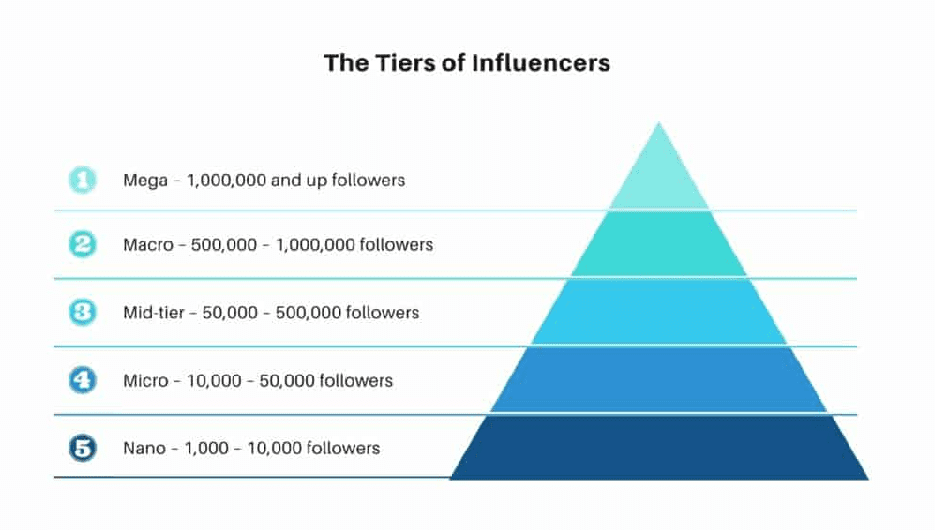A seemingly endless debate is taking place in marketing circles. Which approach offers the best benefits? Content creator vs. influencer marketing for startups?
Both are marketing staples nowadays, and both industries only continue to expand.
The influencer industry is now valued at $16.4 billion, while the content creation industry is worth about $44 billion.
Neither shows signs of slowing down, and both have proven their value throughout the years.
Content Creators vs Influencer Marketing for Startups
Which one is more beneficial, however?
Rather, and more importantly, which one can best benefit your startup?
Join us as we explore the matter in depth.
What Are Content Creators?
Content creators, or digital creators, are individuals who, simply put, create content.
Such content tends to be specialized in a specific niche and is typically deep and informative.
Content in this sense can include:
- Visual content, like photos, videos, and infographics
- Auditory content, such as podcasts
- Copy, such as blog content
Of course, content creators don’t simply create content.
They also share it on their existing platforms.
These may include their social media profiles, websites, and other channels.
However, while it likely is a part of their own brand and business strategy, content creators don’t often focus primarily on promoting their content.
Instead, their primary concern lies in content creation, creating valuable, informative content that their audiences appreciate.
YouTubers are a prime example of content creators who cross-promote their content but primarily rely on content creation.
Here’s an example: Athlean-X is a YouTube content creator with a strict focus on science-backed fitness and exercise:

What Are Influencers?
On the other hand, influencers are primarily social media personalities.
Their content tends to focus more on themselves and their daily lives than on a specific subject.
Influencer content will thus typically look more like:
- Daily life vlogs
- Vacation photos
- Photos of products they use
That’s not to say influencers can’t produce content like content creators.
If they are invested in a specific niche, they very well can.
But they will focus more strongly on content promotion than creation.
This is the crucial distinction in the content creator vs. influencer comparison.
The most prominent influencers tend to be celebrities or individuals with strong brand recognition.
Their audiences have an interest in THEM, not in their niche.
TikTokers are a prime example of influencers nowadays, given the platform’s rapid expansion.
In line with the above, here’s an example: Dwayne “The Rock” Johnson, his broader career aside, is an influencer there:

A Note On Influencer Sizes
Not all influencers boast the size of The Rock, of course, or even larger influencer celebrities like Kim Kardashian.
In fact, influencers vary in size quite considerably, ranging from micro to mega influencers.
This factor bears noting, because businesses often equate potential marketing gains with audience size.
That’s far from the case, however, because even micro-influencers can deliver notable benefits for small business owners.
In other words, different sizes come with different benefits.
Exploring the benefits of smaller creators, Digital Dot found that micro-influencers have higher audience engagement rates.
They also note that they’re distinctly more affordable and come with lower risks of monetary losses.
In brief, micro-influencers best fit campaign goals like:
- Brand awareness
- Audience expansion
- Lead generation
In contrast, more prominent influencers tend to best fit goals like:
- Sales
- Brand advocacy
- Lead acquisition
- Reputation management
- Customer satisfaction
Exact influencer tier brackets do vary a bit, especially across platforms.
That said, micro-influencers tend to have up to 50 thousand followers, while mega-influencers usually have over a million.
For a detailed breakdown, the following infographic by Signalytics should help:

Content Creator vs. Influencer: Similarities and Differences
To summarize, the two do share some similarities which may blur the lines:
- Both create and promote content
- Both will typically be, to some extent, active on social media
- Both may be invested in a specific niche
More substantive differences divide them, however:
- Content creators tend to focus more on their informational content and niche, while influencers mostly broadcast their own lives
- Content creators focus more on content creation, while influencers focus more on content promotion
- Larger influencers tend to have some existing brand recognition and have much larger audiences than content creators
Still, both can offer notable marketing benefits, as we’ll cover next.
Content Creator vs. Influencer: Marketing Benefits
Here, instead of breaking down the perks of each, we’ll outline common small business marketing benefits you may be prioritizing.
This should help outline which one will typically best fit the goal while still leaving room for notable overlaps.
Brand Awareness
Typically a key marketing goal, and for a good reason, brand awareness helps kickstart a business.
It puts it on the proverbial map and in the minds of more potential customers.
With their focus on the promotion, influencers tend to best fit this goal.
The bigger influencers have large enough audiences to secure some lead generation, while smaller ones have enough audience engagement to attract more qualified leads.
Still, Search Engine Optimization (SEO) also helps considerably with long-term brand awareness.
SEO requires a robust content strategy, which content creators are best suited to help with.
Authority Within Your Niche
Beyond initial brand awareness, you will likely want to start establishing yourself as an authority in your field early.
This will enhance your SEO, increase online visibility, and build trust with audiences to incentivize more sales.
In this regard, content creators have the upper hand.
Informative content will best showcase your expertise, enhance your audiences’ experience on your website, and enrich your in-house content.
How-to and support videos are excellent, but not the only example of this.
That said, influencers dedicated to a niche can also benefit you in this sense.
Their influential endorsements can add credibility to your campaigns, from which point your valuable website content can take over.
Brand Advocacy
There’s arguably no clearer example of overlap in the content creator vs. influencer comparison than brand advocacy.
One cannot underestimate the sheer value of brand advocacy in marketing – and both incite it in different ways.
By definition, many invested influencers effectively serve as brand advocates.
Their recommendations act as endorsements for their audiences, which constitutes brand advocacy.
Such audiences tend to already be invested in your niche, too, so they’re more likely to become advocates themselves.
In fact, influencer recommendations garner more trust than social media content, as Shopify finds:

However, long-term brand advocacy requires organic advocacy built through trust.
Your brand will soon need to organically inspire advocacy in satisfied, dedicated audiences and customers.
In this sense, content creators actively build your brand to meet this goal.
Sales
Finally, we come to sales, a staple goal of most marketing campaigns.
Much like with advocacy, content creators and influencers can help achieve this goal differently.
Influencers do so in self-evident ways: their primary concern lies in promoting your products and thus securing sales.
They can often serve as affiliate marketers as well, should you build such bonds.
In brief, their key focus aligns perfectly with the goal of securing sales.
That said, this approach has its limits – which content creators can help overcome.
For example, business-to-Business (B2B) marketing has distinctly different needs from Business-to-Consumer (B2C) marketing.
The former targets decision-makers who seek information and make decisions based on logic and data.
You’ll fail to drive impulse purchases from them by eliciting emotional responses.
In brief, both have their uses in different contexts – and synergize quite well.
Influencers can secure sales directly, while content creators can build up your content strategies toward alluring and converting customers.
Which Is For You: Content Creator vs Influencer Marketing for Startups?>
In summary, there’s no clear winner in the content creator vs. influencer marketing for startups debate.
Each best suits different marketing goals, and each comes with distinct benefits.
As such, the final choice between the two should account for your own goals and needs.
If you need quicker brand awareness and direct sales, you may opt for influencers.
Alternatively, you can collaborate with content creators to build out your website and SEO for long-term goals.
Of course, ideally, you should capitalize on both types of marketing.
Most strategies offer room for both influencers and content creators.
However, if you’re on a tighter budget with your startup, you will need to prioritize.
Feature Image sourced under creative commons reuse and modification license from Pexels.com.
All other images taken as screenshots from YouTube, TikTok, Shopify, etc.
Disclaimer: The views and opinions stated in this post are that of the author, and Return On Now may or may not agree with any or all of the commentary.





